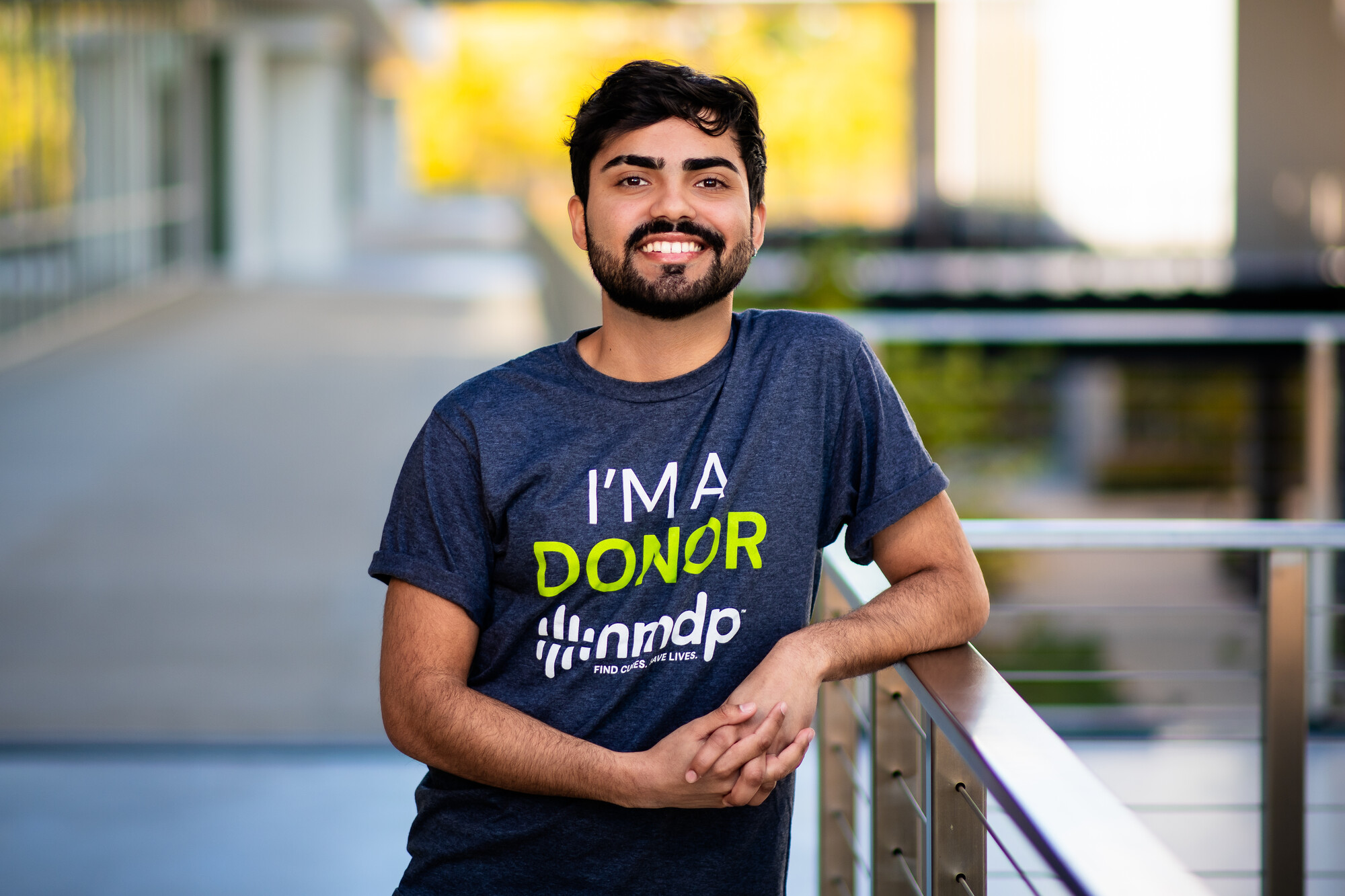A Nurse in the Making: Collin College Nursing Student’s Lifesaving Donation
December 09, 2024
Griselda Perez

At Collin College, students are not only preparing for their future careers but also making a direct impact on the world around them. Francisco Colina-Salas, a Collin College nursing student, recently made a life-saving blood stem cell donation through the National Marrow Donor Program (NMDP), a global nonprofit organization. As we observed National Marrow Awareness Month in November, Colina-Salas’ journey stands out as a testament to the power of compassion and the impact of community.
Early this year, after learning about a staff member’s diagnosis of a life-threatening illness who would benefit from a bone stem cell donation, nursing program faculty and staff proposed an awareness campaign surrounding the NMDP registry. Kim Forcum, director of the Collin College vocational nursing program, led the initiative with the help of others in the nursing program.
“We thought it would just be a good opportunity to share great information to our health professions and nursing students,” Forcum said. “Our students were familiar with this staff member, and we wanted to support in any way possible, even if it just meant spreading awareness through the work NMDP is doing.”
Forcum connected with NMDP, an organization that had worked with Collin College before. They passed out more information about the NMDP registry, and how interested students could help.
“I didn’t know too much about NMDP, but that changed when I was in class and got to hear about the difference registering could make,” Colina-Salas said. “There was no feeling of obligation, but as a nursing student, I thought ‘how can I be pursuing a profession to help people, and not use this once-in-a-lifetime opportunity to help?’ It’s a once-in-a-lifetime opportunity, not for me, but for a potential recipient.”
Colina-Salas said the process for entering the registry was simple. He took a quick swab of the cheek, packed it in a sterilized tube, and sent it off via mail.
“Months passed before I heard anything from NMDP,” Colina-Salas said. “I had honestly forgot about the whole thing until I received a phone call giving me the good news – I matched with someone!”
Due to the privacy of the matter, Colina-Salas was given limited information about the recipient. But he added that the details weren’t too important to him, so long as he could help.
“It took a couple of tests and questionnaires to move on to the next phase of the process, but at every step, I was asked if I was willing to move forward, and if I was still comfortable with my decision. I really appreciated that,” Colina-Salas said.
Once Colina-Salas was cleared, he was told he’d be making a trip to Houston to make the donation. At this point, he began planning to make it happen.
“Francisco came to me with the great news that he was a match, and asked about being accommodated for class,” Forcum said. “Luckily, we were able to do that. I was excited for him, and proud to see his commitment to this unique opportunity.”
It was only days before Colina-Salas was on the road to Houston preparing to make his blood stem cell donation. On the day of the donation, Colina-Salas was filled with a mix of emotions – nervousness, excitement, and a deep sense of purpose. The procedure involved collecting stem cells from his bloodstream.
“I sat in a comfy chair for eight hours the first day, and six hours the next. It was just like donating blood, but it took a lot longer,” Colina-Salas said with a chuckle. “It was all worth it.”
According to NMDP’s website, the probability of matches increases with a younger, and more diverse registry. Certain ethnic groups may have more complex tissue types than others, which makes finding a close match a bit more difficult. The probability of successful transplants increases significantly with cells from younger donors, as well.
“This information was all new to me,” Colinas-Salas said. “As a young Hispanic man, I hope I can at least share my story so others that look like me can learn about this.”
As Colina-Salas continues his studies to become a nurse, he carries with him the knowledge that he has already made a profound difference for at least one person. He adds that he hopes his future career will create more of these moments.
“It can be your friend, mom, brother, or anyone you love who might be ill and need something like this,” he said. “Illness doesn’t discriminate. You just never know when you might be someone's only hope.”
Colina-Salas has stayed connected with professor Forcum and hopes to share his story with other healthcare students in the future.
“I plan to return to Collin College even after I complete my studies to share this story with other students,” Colina-Salas said. “As for the recipient, I really hope they are on the road to recovery. I wish nothing more than to know they got another shot at life.”
Collin College is committed to preparing the next generation of healthcare professionals to make a positive impact in their communities and beyond. Colina-Salas is just one example of how a small act can create a lifechanging impact.
To learn more about NMDP, visit www.nmdp.org.
For more information about Collin College, visit www.collin.edu.Photo by Collin College Photographer Sara Carpenter.
Back to Newsroom
